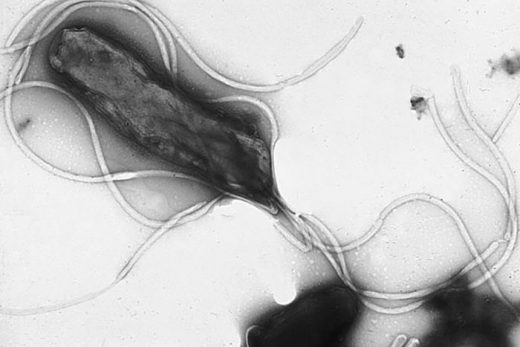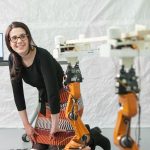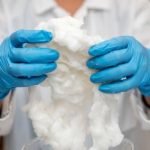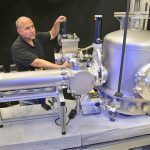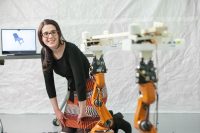Inside the Mind of a Mad Scientist: The Incredible Importance of Personal Science
May 5, 2016
For decades the world’s greatest doctors and researchers had believed that stomach ulcers and, eventually, stomach cancers were caused by stress, spicy foods, and too much acid in the stomach.
Barry Marshall wasn’t buying it. Marshall was an Australian physician and microbiology researcher and he believed that stomach ulcers were not merely the byproduct of a hectic life or an overly spicy dinner. Instead, he believed ulcers were caused by bacteria. More specifically, Marshall believed ulcers were caused by Helicobacter pylori.
There was, however, a problem with this theory:
Marshall and his lab partner were pretty much the only people who bought into the crazy idea. Despite his belief, Marshall had been unable to prove the link between bacteria and ulcers in his lab experiments on pigs and now his grant money was running out. Meanwhile, thousands of people continued to die from stomach cancer each year.
The Mad Scientist
Fed up with the situation, Marshall decided to take matters into his own hands and conduct a personal science experiment of the boldest kind.
In July of 1984, Marshall held a beaker of cloudy, brown liquid that was swimming with Helicobacter pylori and prepared to take a swallow. He “drank it down in one gulp then fasted for the rest of the day.”
In the words of physician Siddhartha Mukherjee, Marshall had “swallowed a carcinogen to create a precancerous state in his own stomach.”
Three days later, Marshall started feeling nauseous. On Day 5, he began to vomit and continued doing so for three days straight. All the while, his colleague took samples of the bacteria in Marshall’s stomach lining and recorded the physiological changes as Marshall began to develop a severe episode of gastritis in his stomach. After two weeks of self-induced hell, Marshall had the proof he needed and began taking antibiotics.
Luckily, he made a full recovery. Within a month, Marshall and his colleagues had submitted his experiment and results to the Medical Journal of Australia for publication. Not only had they proven that Helicobacter pylori was the cause of stomach ulcers, they had also revealed an important precursor to stomach cancer. Marshall and his lab partner, Robin Warren, received the 2005 Nobel Prize in Physiology or Medicine for their efforts.
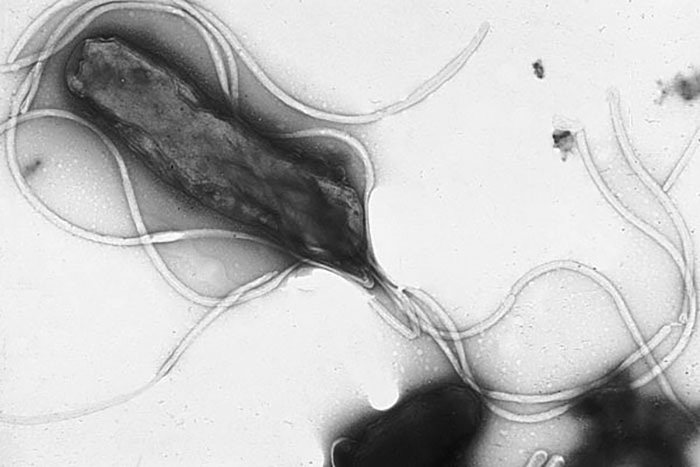
The Power of Personal Science
Barry Marshall is a real life mad scientist. He drank a cancerous cocktail in hopes of discovering a scientific truth. His story is one of many mentioned in the fantastic book, The Emperor of All Maladies.
Marshall is an extreme case of what my friend Josh Kaufman calls “personal science.”
Personal science refers to the idea of executing small experiments on your own with the intention of discovering new ways to solve problems and get results in your life. While typical studies are conducted on a large scale and published in academic journals, personal science experiments involve a single patient (you) and are focused on delivering highly practical and useful pieces of information.
Marshall used personal science to further his career goals, whereas you and I may use personal science to build a new health habit or improve our performance at work. The goal of these mini-experiments is to discover what gets you real-world results. As a writer and researcher who tries to blend science-based ideas with practical insights, I believe this philosophy of self-experimentation is incredibly important.
Why?
Because no matter how much science and theory you understand, you can never get a result in your own life unless you have the courage to take action.
Unleashing Your Inner Mad Scientist
Personal science isn’t an excuse to do something reckless. I don’t, for example, recommend drinking a test tube of precancerous bacteria. I do, however, believe that executing your own experiments and having a willingness to try things will make your life better.
Here are a few reasons why:
Personal science forces you to move past planning. If you want to accelerate your learning, develop new skills, and get useful results, then you must try things. So often we wait to take action because we believe we need to read or research more. What if, as an alternative, we spent less time trying to find the best strategy and more time testing the strategies we already have? It can be easy to forget that practice is often the most powerful form of learning.
Personal science is low risk. Unlike Marshall’s crazy cancer slushie, nearly any experiment you or I will conduct is typically low risk. Rarely, do we face life-or-death, cancer-in-the-stomach type of risks. Usually, the barriers to our progress are discomfort, uncertainty, inconvenience, and the fear of criticism. Personal science forces use to move past these emotional hurdles and see them for what they really are: limiting beliefs.
Here are some examples:
- Wish you would finally write your book? Experiment with cutting out an activity you enjoy to make time for this important goal. What is the potential risk? Are you really worried that you’ll miss this season of your favorite TV show?
- Trying to eat healthier? Create a bright-line rule and experiment with eating one vegetable per day, no matter what. What is the potential risk? That you’ll have a long day and have to make a batch of asparagus at 10 p.m.?
- Want to be an early riser? Experiment with waking up at 5 a.m. this week. What is the potential risk? That you’ll feel tired for a week?
Personal science teaches you the key to true problem solving. We often read books and rely on research studies for the answers to our problems. Knowing where to get information is a useful skill, but the key to good problem solving is not to have someone else do the work for you. The key to good problem solving is a willingness to try things, experiment thoughtfully, and do the work. (2)
Step Into the Arena
We all live our lives in different laboratories. Your corner of the world—filled with your experiences, your biology, your environment, your friends, your beliefs—is a different petri dish than mine. There are plenty of fundamentals that apply to all petri dishes, but no matter where you find yourself, you have to be willing to experiment if you want to get a result.
Let your mad scientist out every now and then. Step into the arena and put yourself through the fire. The only truth is what works for you. (3)
This article was originally published on JamesClear.com.
- The Emperor of All Maladies really is an incredible read. I highly recommend it, especially if you love science. Or, if you just want to be blown away by the amount of effort one author can put into a book.
- This does not, by the way, mean that others do not have a responsibility to teach and to share their knowledge. Just because we should help one another, however, does not mean you are entitled to having others figure your problems out for you.
- Thanks to Siddhartha Mukherjee, Josh Kaufman, and Matt Gemmell who each inspired pieces of this article.
Business & Finance Articles on Business 2 Community
(30)

